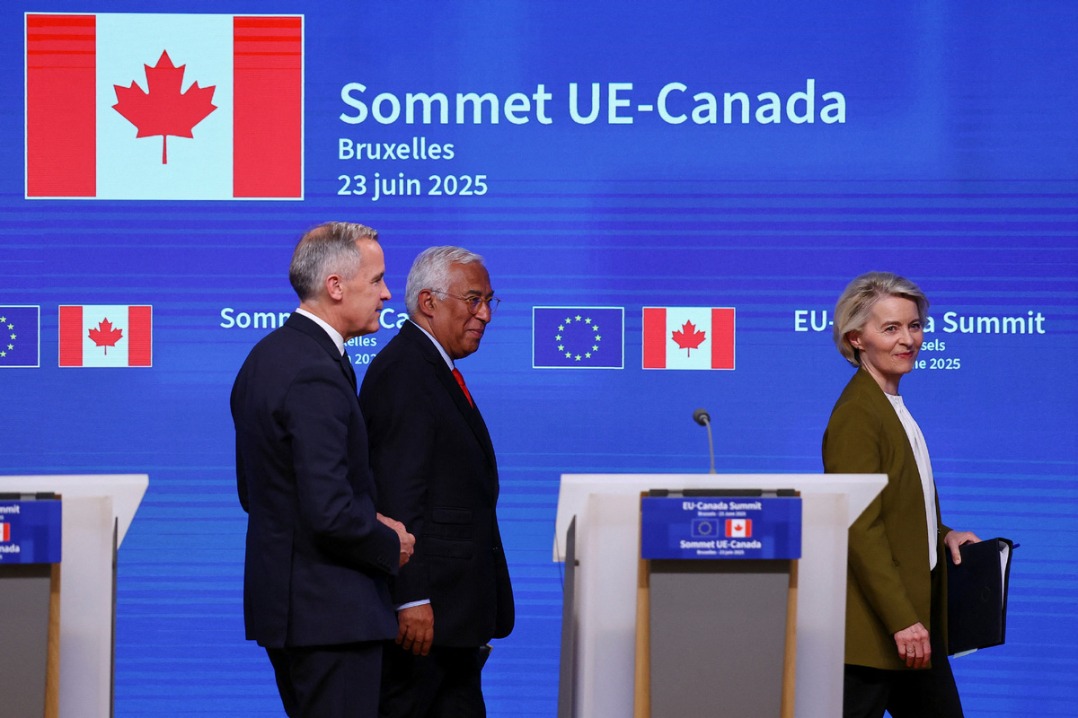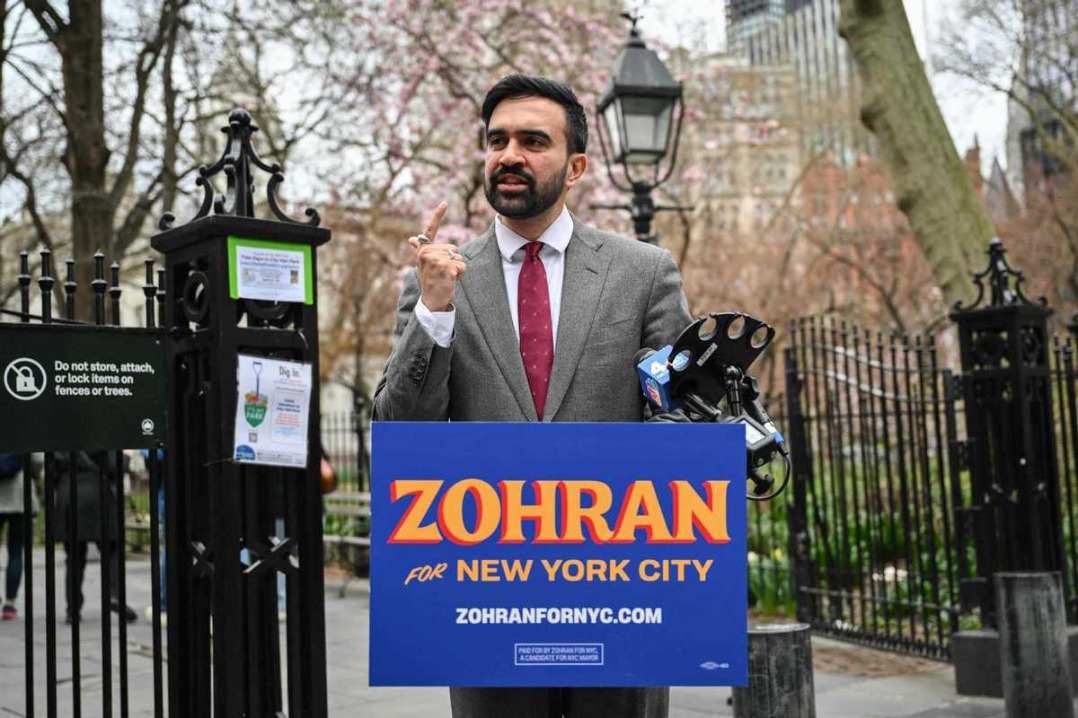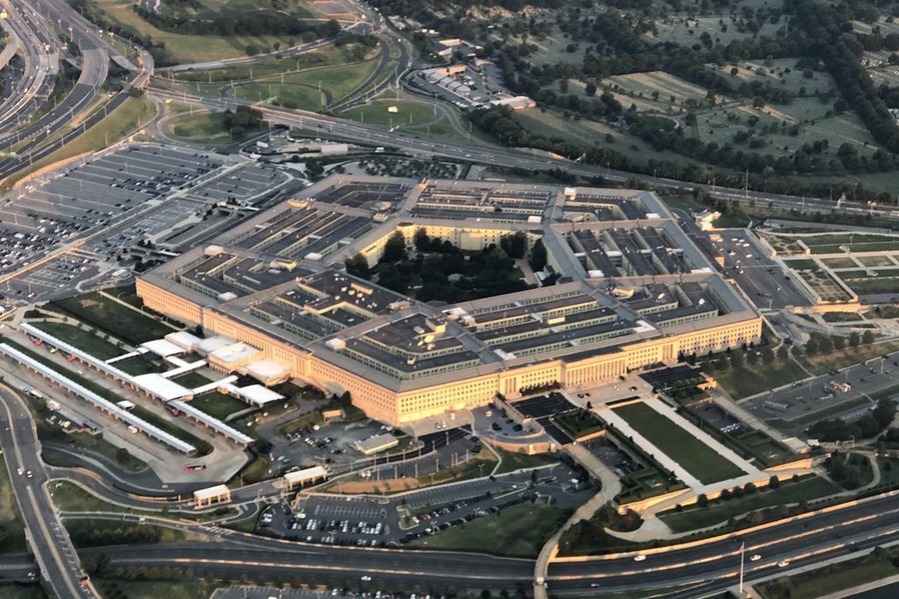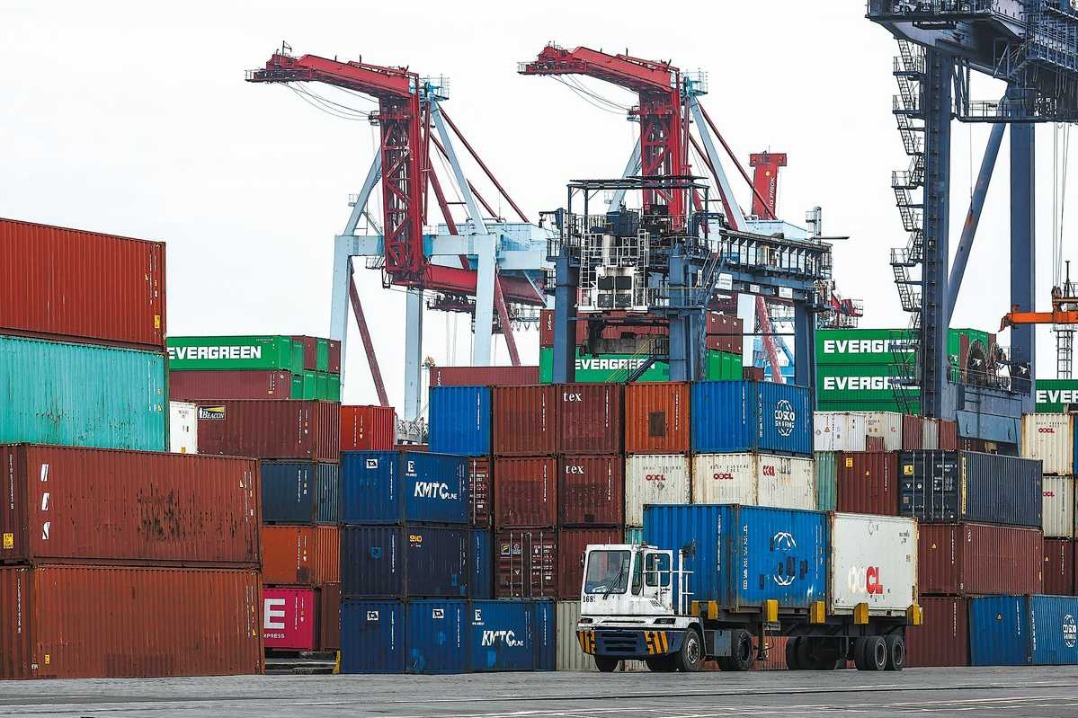Canada-EU defense pact marks shift away from US reliance

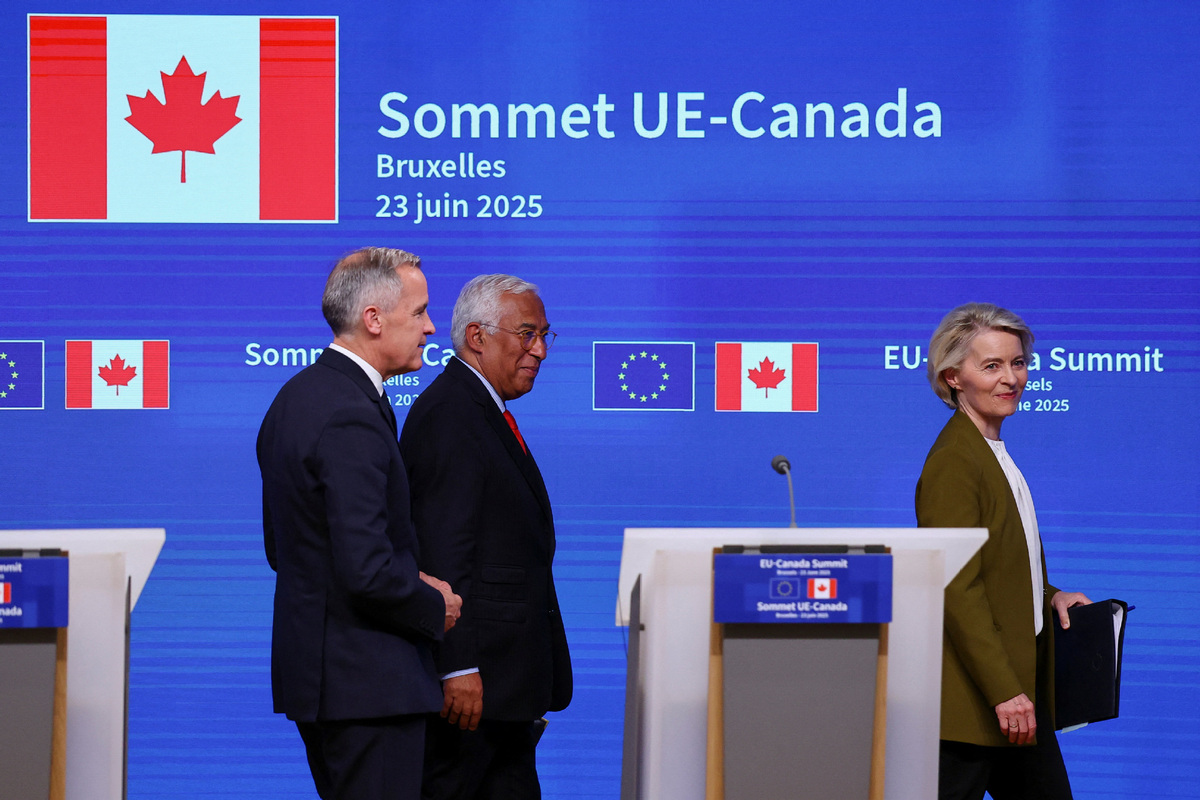
By signing a landmark defense pact with the European Union, Canada is taking a step toward reducing its military dependence on the United States, amid growing uncertainty over US foreign policy.
Canada may find itself increasingly aligned with the EU on issues such as climate policy, arms control and multilateral diplomacy, according to Erika Simpson, an associate professor of international relations at Western University.
"Canada has more in common with Brussels than with certain Washington administrations," she told China Daily.
However, she said that Canada's core security and economic interests are still closely tied to the United States.
"Rather than choosing sides, Canada will likely continue to demonstrate its practice of quiet diplomacy and playing a bridging role — quietly aligning with EU values while remaining integrated with US defense systems," she said.
Canadian Prime Minister Mark Carney signed a strategic defense and security partnership with the European Union on June 23.
"Canada will build ever-stronger alliances to support our security and prosperity, both at home and for our partners," Carney said on X.
"This agreement strengthens Canada's profile as a reliable middle power that promotes multilateralism and rules-based international cooperation," Simpson said.
"It also bolsters Canada's global standing as a constructive bridge between the Atlantic allies — positioning Canada not only as a junior partner to the US, but as a distinct voice in global security discussions," she said.
Signed in Brussels this week, the pact marks the EU's first security and defense agreement with a country in the Americas.
Under the new security and defense agreement, Canadian companies will be eligible for procurement programs from the joint fund of €150 billion ($175 billion) in loans for arms purchases.
In addition to the defense pact, the two parties will begin negotiations to reach a digital and tech agreement that would "enhance cooperation on AI innovation."
During the news conference on Monday, Carney remarked that they were meeting at a time when the rules-based order of the world was under threat.
He said they were presented with two options: to nostalgically long for the old order or to build a new one through partnership.
"As the most European of the non-European countries, Canada looks first to the European Union to build a better world," Carney said. "And that's what today is about."
"The EU's decision suggests that it sees Canada as more than an extension of US policy — rather, as a country capable of independent and principled engagement in defense and foreign affairs," Simpson said.
Earlier in the year, US President Donald Trump vowed to annex Canada and make it the 51st state.
Carney rejected the claim and argued that Canada is too dependent on the United States for defense and military.
"Seventy-five cents of every dollar of capital spending for defense goes to the United States. That's not smart," Carney told the CBC earlier.
Asked whether the deal signals a step away from US military reliance, Simpson said, "To an extent, yes — but cautiously. Canada will remain deeply integrated with the US through NORAD and NATO."
Still, she said the agreement offers "greater strategic flexibility and may serve as a hedge against unpredictable shifts in US foreign policy."
"This diversification is prudent, especially in a time of rising geopolitical uncertainty and election-related instability in Washington," she added.
The timing of the agreement has drawn attention. Just a week ago at the G7 summit, Carney said he hoped to reach a new trade and security agreement with the United States within 30 days.
According to Simpson, the Canada-EU deal could influence how Washington approaches those negotiations.
"It signals to Washington that Ottawa has viable alternatives and strategic leverage," she said.
"It may prompt the US to approach negotiations with Canada more seriously and respectfully.
"That said, Canada must be careful not to overplay its hand — the US remains our most important partner, and diplomatic finesse will be essential," she said.
Canada agreed with its NATO allies on Wednesday to set a goal of 5 percent of GDP for annual defense and security-related spending by 2035.
Trump hailed pledges by NATO leaders to significantly increase military spending at his behest.
Carney told CNN on Tuesday evening that signing on to NATO's new defense spending target could cost the federal treasury up to $150 billion a year.
"Now, under the strain of Donald Trump's aggressive tariff regime, Canadian taxpayers are being asked to shoulder a dramatic increase in military spending," she said, pointing to public backlash against Ottawa's $19-billion plan to purchase 88 F-35 fighter jets.
"According to Auditor General of Canada Karen Hogan, the cost has ballooned to $27.7 billion. An additional $5.5 billion is required to secure missiles and related infrastructure," she said.
Simpson cited critics who said that the five-percent target is "fiscally reckless and morally misguided."
"Billions earmarked for military innovation and defense-industrial integration would be better directed toward Indigenous reconciliation," she said.
"Clean drinking water, adequate housing, accessible health care and quality education remain out of reach for many First Nations communities — a national failure that should be a priority," she said. "Instead, his decision entrenches Canada deeper within the orbit of US defense interests."
gaoyang@chinadailyusa.com
















